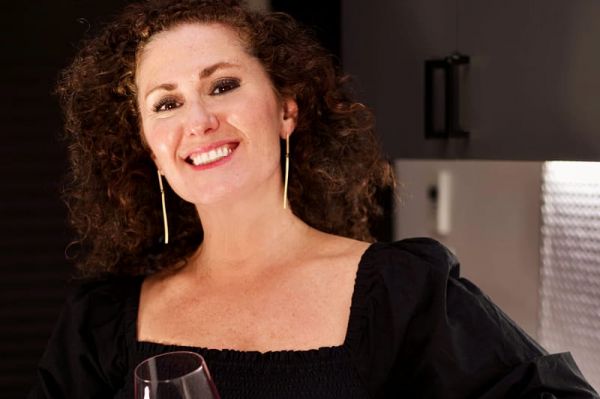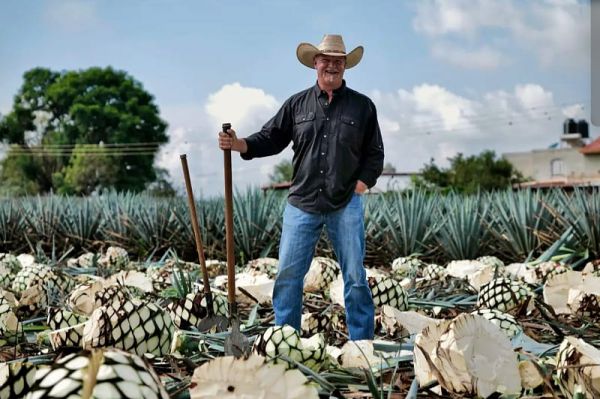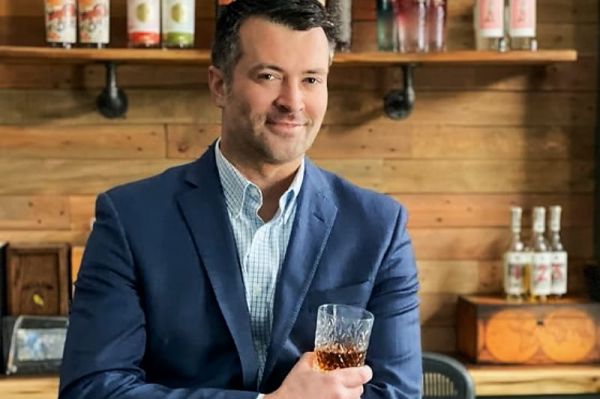Log in to your account
Lost password?Press Releases
Highlights From Day 1 of the International Bulk Wine and Spirits Show in London
On February 26, the International Bulk Wine & Spirits Show (IBWSS) officially opened at the Royal Horticultural Halls in London. The busy Tasting Floor saw many genuine buyers mingling with the producers. Business cards were exchanged, samples were poured and hands were shaken.
27/02/2018
On February 26, the International Bulk Wine & Spirits Show (IBWSS) officially opened at the Royal Horticultural Halls in London. The event kicked off with a brief keynote address and welcome by award-winning business editor Richard Siddle, who outlined the dramatic growth in the bulk wine industry in the UK and gave a brief outline of what participants could expect to learn in both the morning and afternoon sessions.

The busy Tasting Floor saw many genuine buyers mingling with the producers. Business cards were exchanged, samples were poured and hands were shaken.

The morning session started with a presentation by Clive Donaldson, wine sourcing manager at Wm Morrison Supermarkets PLC. Donaldson outlined what UK retailers are really looking for in private and bulk suppliers. Shelf space at UK retailers is increasingly scarce, so there is tremendous demand for wines that customers are actually willing to drink. The logic is simple: “If customers want to buy a product, we will want to buy the product.”

At one time, the decision by retailers to carry private label wines often involved a consideration of the trade-offs between price and quality, but not any longer. The average consumer is becoming much more sophisticated and the private label wines you can now find on the shelves of London’s top retailers are now of considerable quality. That has raised the bar for international winemakers attempting to access the fast-growing UK market.

In fact, the issue facing many UK retailers is not whether or not they should get involved in the private label industry, but rather, what sorts of private label brands they should be creating. In a panel discussion that also took place in the morning of Day 1, participants led by Andrew Catchpole, editor at Harpers Wine & Spirit, discussed the best ways to go about creating a private label program.
The important point to keep in mind here, said the participants, was that both small and large retailers are already heavily involved in the private label and bulk wine trend. In fact, according to many wine analysts, bulk wines now account for more than 50 percent of all wine sold in the UK, and that trend is only accelerating. In a market such as the UK, the competition is high and producers need to understand the needs of retailers as well as consumers to succeed.
There are a number of important things to keep in mind, in order to make sure that your private label program is working as planned. For example, you need to consider factors like best routes for sourcing, consistency of supply, quality control, and the potential marketing synergies in expanding a private label range.

Throughout the first day, speakers outlined in greater detail some of these factors that go into creating a highly effective private label program. For example, in the morning session, David Richardson of the WSTA discussed the regulatory issues specific to the bulk wine industry. He focused on the regulatory distinctions between bulk products and cased goods. What’s important, he says is to make sure that you are really capturing all the price advantages of shipping in bulk. You really need to have a handle on the hidden regulatory costs that might inflate your transportation costs. “Bulk has clear benefits,” he said, “but it also demands a higher level of commitment.”

Later, Barry Dick, MW went into finer grain detail about the differences between shipping with Flexitanks and International Standards Organization (ISO) tanks. When shipping in bulk, cost savings are just part of the total picture. You have to understand the important competitive differences of these two shipping standards (Flexi and ISO), he says.

By mid-day, the expo floor at the event had opened, and participants had plenty of time to mix and mingle with some of the exhibitors. All told, the exhibitors at the London event represented a range of bulk industry suppliers, importers and distributors, including Bear Creek Winery (California), Bodegas Vinival (Spain), Casa Girelli (Italy), Cortecchia (Italy) and Kingston Estate Wines (Australia). And, of course, there was plenty of innovation on display as well, such as the new spirit glassware from The Neat Glass.

The show floor gave participants a better chance to consider some of the strategic options for growing their own private label wine business. For example, should a UK retailer be talking with bulk wine suppliers from Australia and other New World wine destinations, or instead, keeping the focus much more on European bulk producers?

Answers to those types of questions were provided at an afternoon session led by Clem Yates, MW, who talked about private label and bulk strategies for importers and distributors. One issue she brought up was the need to avoid channel conflict. The problem, she says, is that private labels can put a strain on relationships with manufacturers. These wine and spirits brands are counting on distributors to get their products onto the shelves of retail destinations and can understandably feel a bit threatened when they see those same distributors embracing lower-cost private label brands.
Ultimately, suggested Yates, it’s all about seeing the emergence of new brands as an opportunity, not a threat. Those new brands are helping to grow the overall market, and can actually have a positive impact for wine suppliers. For example, consumers may develop a taste for red wines from Spain, and that could spark a trend that lifts all winemakers from Spain.

One major theme that emerged throughout the day was that the private label and bulk wine industry is truly global now. What happens in Chile, Spain, South Africa or Australia will have an impact elsewhere in the world. Highlighting the global nature of the bulk wine industry, Florian Ceschi, Director of Ciatti Europe, shared the latest findings of the Global Bulk Market Report. Within every major trend, he said, there are very big opportunities.

After more mixing and mingling on the expo floor in the afternoon, participants were already looking forward to Day 2 of the IBWSS event in London, which will feature more industry insiders and highly-acclaimed experts sharing their thoughts, opinions and insights on the growth of the private label and bulk wine and spirits industry within the UK.











